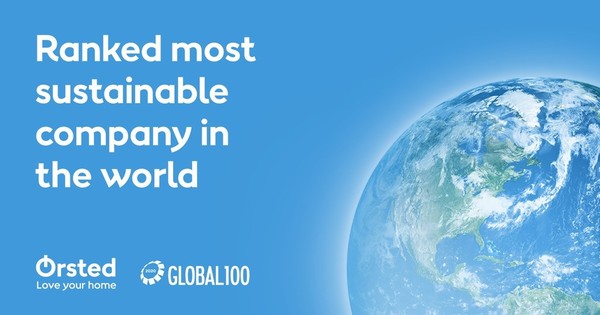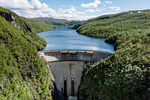News Release from windfair.net
Wind Industry Profile of
Greenpeace Criticising RWE
Shortly before replacing their CEO, which is due at the end of April, RWE is ill-prepared for the new energy markets. That's what the new study 'RWE: Gone with the Wind' by German energy analyst Steffen Bukold (on behalf of Greenpeace) concludes.
Yet the past year "really went extremely well" for RWE, as acting CEO Rolf Martin Schmitz, emphasised when presenting the 2020 results. Even the Corona crisis hardly affected the energy provider, only the onset of winter in Texas and the associated power cuts clouded the results a little.
Balance sheets look correspondingly good. While the fairy tale of the 'poor' energy supplier hit hard by the German energy transition and nuclear and coal phase-out is painted to the world, the adjusted earnings in 2020 before interest, taxes, depreciation and amortisation are 3.2 billion Euros - more than even the company's own management had expected. This also pleases the shareholders, as current year dividend will be increased due to the good financial situation, thus investors are to receive 90 cents per share for 2021, compared to 85 cents for 2020.
But there is a threat of trouble for RWE, because CEO Schmitz relied on coal far too long and has delayed a reorientation towards renewable energies, as the new Greenpeace study shows.
Economic risks are looming as the Essen-based company wants to stick to climate-damaging lignite until 2038 - the latest possible date for the phase-out. If CO2 prices will rise, there is the threat of a cost explosion. "RWE's reckless coal business harms the climate and the balance sheet," says Greenpeace climate expert Karsten Smid. "The company will only find a place in the new energy world if it cuts its massive CO2 emissions much faster than it has so far and draws a swift line under lignite."
However, it doesn't look like a change in the course taken any time soon. Designated CEO (and acting CFO) Markus Krebber, too, is a friend of fossil resources for energy production. Although he is relying on natural gas instead of coal, he hasn't announced an accelerated coal phase-out. Greenpeace thus criticises that it is neither apparent how RWE intends to become climate neutral by 2040, nor how it intends to support the Paris climate goal in the coming years. "We don't buy RWE's radical shift in strategy from climate killer to eco-company," says Smid. "There's little substance behind Rolf Schmitz' and Markus Krebber's green rhetoric."

Competitor Ørsted has successfully shed its fossil roots (Image: Ørsted)
Greenpeace's verdict is damning: former energy giant RWE is on a shrinking course. Internationally, the company is only seen as a "medium-sized newcomer" in the renewable energy sector, according to environmentalists. Moreover, the oil multinationals are increasingly gearing up for a future in this sector. Shell and bp e.g. have already put down their roots in the offshore wind market. It will be difficult for the Germans to keep up - with even a takeover lurking.
Greenpeace's assessment: after five years, RWE boss Schmitz "leaves behind a company without a clear strategy. His successor Krebber takes over an ailing group."
Another - and better - way to handle things comes from the list's #1: Ørsted, which a few years ago was still operating as DONG (Dansk Olie og Naturgas A/S) in the field of fossil energy production, has in recent years consistently divested itself of all business areas that stood in the way of the goal of a CO2-neutral future. The company is a global pioneer on the path to clean energy production and regularly ranks first among the most sustainable companies in the world. That would also look good on German RWE.
- Author:
- Katrin Radtke
- Email:
- press@windfair.net
- Keywords:
- RWE, Orsted, utility, energy, oil, gas, fossil, Greenpeace, study, Paris Aggreement, sustainable, pioneer, offshore, developer, renewable energy

























